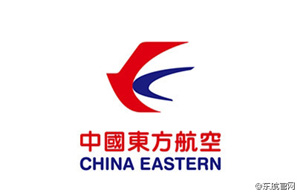According to the Civil Aviation Administration of China, passenger travel will expand about 10 percent annually through 2030, when about 1.5 billion trips will be taken a year. That will make China the world's largest civilian air travel market, which means "China will have a huge demand for biofuel", said Wu.
Biofuel can reduce carbon emissions by 50 to 80 percent compared with petroleum-based fuel, experts have estimated. China is just one of the countries aiming to cut the use of conventional jet fuel and shift toward biofuel.
The International Air Transport Association has set a target of 6 percent of market share for sustainable biofuels by 2020 to support the aviation industry's goal of reaching carbon-neutral growth by 2020 and reducing carbon emissions by 50 percent as of 2050, compared with 2005.
Biofuel can be used in all current aircraft, and no engine modifications are required, said Wang Guangqiu, vice-president of COMAC's Beijing Aeronautical Science and Technology Research Institute.
Since 2011, when the American Society for Testing and Materials approved international specifications for jet fuel made from plant oils and animal fats, more than 1,600 commercial flights around the world have been powered by such fuel.
In 2011, Chinese carriers conducted their first test flights with biofuel, supported by China National Petroleum Corp, Boeing, Air China Co Ltd and Honeywell UOP LLC. The test flights used a 50-50 mix of jet fuel and biofuel from jatropha curcas, a shrub that is cultivated in tropical and sub-tropical regions.
The traditional petroleum companies are also working on biofuel, and both CNPC and China Petroleum and Chemical Corp have the technology and potential to produce biofuel, said Wu. But none of them are producing at commercial scale yet, she added.
There are barriers to widespread biofuel use in the aviation industry, and cost is the biggest one. The price of aviation biofuel is about three to eight times that of the petroleum-based variety.
Although the demonstration project of Boeing and COMAC has cut the cost difference to twice that of petroleum-based fuel, that is still too much for airlines. Only about 1 percent of flights around the world now use biofuel.
"The largest cost is technology," said Wu. Most of the raw materials, such as gutter oil or jatropha, are cheap. But refining them is expensive.
"That is why we have to work hard on technology to reduce the cost," Wu added.
Ma Longlong, director-general of the China Biomass Innovation Alliance, said it will take another 10 years for biofuel to be commercialized in China, even with the whole civil aviation industry working on new technology.
Biofuel technology was born in 2005, but has developed fast in China in recent years, said Ma.
"Biofuel technology grew from nothing 10 years ago. In another decade, new technology will be commercialized and enable mass production," Ma said.
|
 |
 |
| China Eastern tests flight using biofuel |
